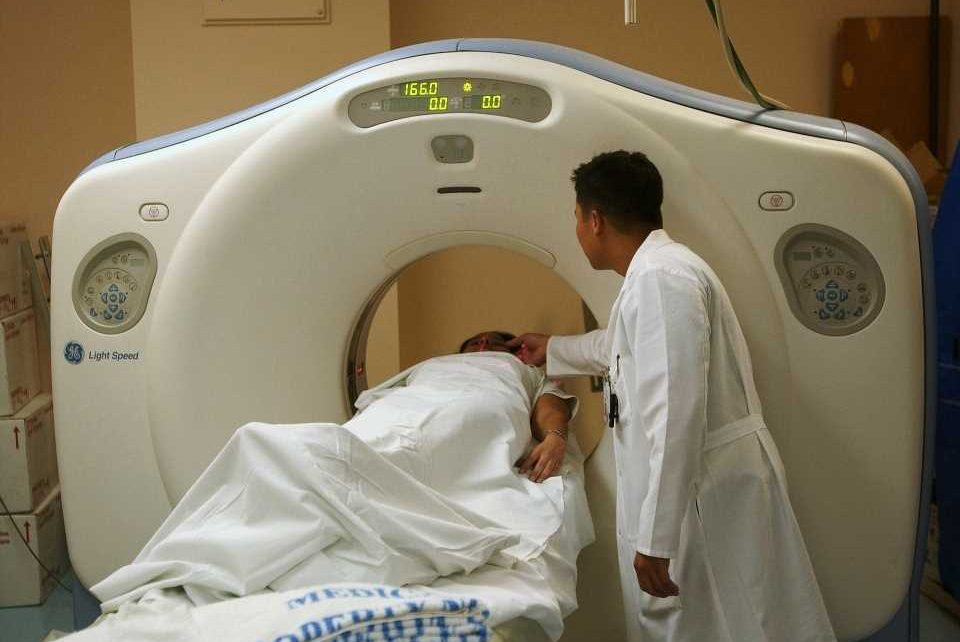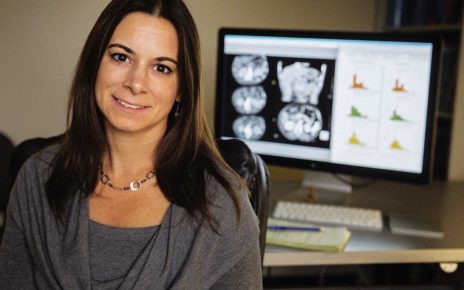
The first step in addressing cancer is getting to your doctors’ appointments. But that’s not so easy for some patients. Health-related social risks, which can be as simple as whether you have a ride to get to the doctor, increasingly are being recognized as affecting cancer outcomes.
“Food, transportation and housing are probably the three most prevalent health-related social risks, and they often co-occur,” said MUSC Hollings Cancer Center researcher Evan Graboyes, M.D.
“And when patients with cancer are affected by them, we know that that leads to worse cancer outcomes. I think it’s recognizing that these are factors that have nothing to do with the biology of cancer, or the way the immunotherapy is actually working, but they’re still critically important factors to consider to ensure that patients with cancer have the best outcomes. Unfortunately, differences in health-related social risks between certain groups are a major reason why we see such disparities in outcomes.”
Graboyes is lead author on a recent paper in the Journal of the National Cancer Institute that outlines the current state of knowledge about transportation insecurity as well as potential policy steps and research questions. It’s part of a group of papers that came out of a series of National Cancer Policy Forum webinars in 2021 focused on these health-related social risks. Graboyes leapt at the chance to work on the transportation insecurity paper.
“This is something I’m really passionate about,” he said. Graboyes, the director of Survivorship and Cancer Outcomes Research (SCOR) at Hollings, is leading this new clinical and research program that harnesses the expertise of providers and researchers across Hollings and the MUSC colleges of Medicine, Nursing and Health Professions to focus on survivorship care, research and next-generation provider training.
Working on the paper, he said, helped him to think through the transportation problems that many patients with cancer in South Carolina experience.
“This is a major problem for the patients we serve in South Carolina,” he said.
“It’s a really common problem that we as oncologists, on some level, already know affects our patients. However, cancer center leaders and researchers are now beginning to think about it more systematically. We don’t have all the answers yet, but we know enough about the issues to begin addressing the problem while at the same time studying how well different interventions work. Outlining the research agenda really helped us recognize that there’s a lot of research that we at Hollings should be helping to lead.”
In fact, there is a lot that’s unknown about how extensive this problem is across the nation. The few papers that have tried to quantify transportation insecurity among patients with cancer have come up with widely different estimates ranging from 3% to 87% of patients.
However, there’s reason to believe that patients with cancer are particularly vulnerable to transportation insecurity. Cancer care doesn’t necessarily follow a regular timeline: Appointments pop up unexpectedly to deal with new issues; patients often need frequent labs or scans; patients see a variety of specialists who might offer appointments on different days; and active treatments like radiation therapy are often scheduled on a daily basis, sometimes for weeks at a time.
Pain medication and side effects of cancer or treatment can make it difficult to drive oneself.
“Cancer care is not always predictable, like dialysis for example, where you know, ‘All right, my dialysis is Monday, Wednesday and Friday,’ and then you can plan transportation accordingly,” Graboyes explained.
And because patients with cancer may be immunocompromised, depending on the treatment they are undergoing, public transportation, if available, might not be a good choice.
The paper highlights innovative programs and companies, like some tech startups that coordinate rides for patients by partnering with health care organizations, health plans and transportation providers.
In addition, nonprofit groups like the American Cancer Society have been helping to address transportation insecurity for patients with cancer through their Road to Recovery and Hope Lodge programs. Under Road to Recovery, volunteers drive people to and from their cancer-care appointments. The program, which was suspended during the COVID pandemic, recently resumed in Charleston, Berkeley, Dorchester and Colleton counties and is actively looking for drivers.
While the Road to Recovery program was suspended, the American Cancer Society continued to support transportation needs through gas cards and vouchers, helping 168 patients from 21 counties in South Carolina—and one from North Carolina—to get to Hollings.
For those undergoing extended treatment, the Hope Lodge offers a free place to stay so people don’t have to travel long distances back and forth. The American Cancer Society runs more than 30 Hope Lodges near cancer centers across the country; the one in Charleston is across the street from Hollings and has provided a “home away from home” for 195 patients and caregivers so far in 2022.
Kim Hale, senior manager for cancer support strategic partnerships with the American Cancer Society in South Carolina, said that the purpose behind these programs is quite simple: If patients can’t get to their appointments, they can’t get treatment.
But there are steps that can be taken beyond relying on the nonprofit sector. The new paper points out areas where changes in federal policy could make a difference. Insurance companies or policymakers could create an incentive to screen for and address transportation insecurity. Nonemergency medical transport could also be a benefit for Medicare enrollees, rather than a benefit only for people with Medicaid. Time restrictions, such as requirements that nonemergency medical transport be booked 72 hours in advance, also limit its availability.
Graboyes noted that the transportation-related challenges that patients with cancer face, and thus the solutions, will look very different in different parts of the country.
“The challenges and solutions in inner-city Philadelphia or New York City are very, very different from here in South Carolina, as a very rural state, or a state like Montana,” he said.
MUSC Health is phasing in a program to screen patients for issues like transportation insecurity and food insecurity, beginning with admitted patients. Graboyes said it’s critical to have plans in place to link patients with cancer who are identified as having health-related social risks with the appropriate resources. However, simply beginning to track and acknowledge the problem is an important first step.
“If we’re committed to helping patients with cancer have the best outcomes, it’s important to destigmatize health-related social risks like food, transportation and housing insecurity and recognize that understanding and addressing these issues are critically important in a comprehensive plan to cure cancer,” he said.
More information:
Evan M Graboyes et al, Addressing Transportation Insecurity Among Patients With Cancer, Journal of the National Cancer Institute (2022). DOI: 10.1093/jnci/djac134
Journal information:
Journal of the National Cancer Institute
Source: Read Full Article



